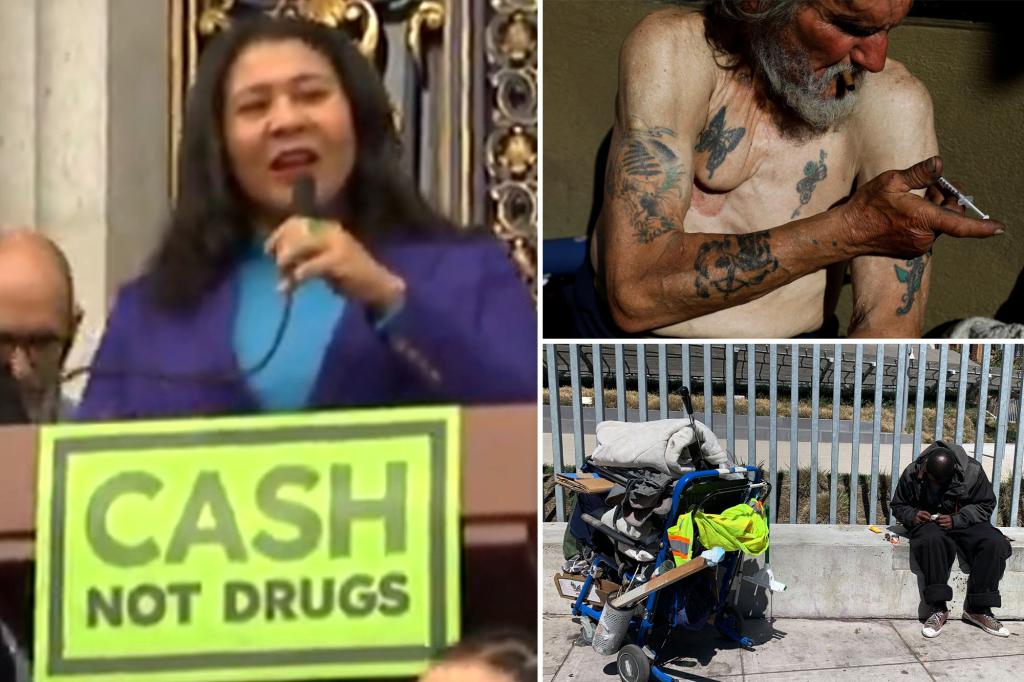San Francisco Mayor London Breed, along with Supervisor Matt Dorsey, proposed a bill called “Cash Not Drugs” that would provide an extra $100 a week to drug-addicted welfare recipients who stay sober. The program would involve giving recipients a gift card or electronic benefit transfer for each negative drug test they complete each week. The program is based on the concept of “contingency management,” which uses positive reinforcement to encourage positive behaviors. Participation in the program would be voluntary, with the goal of rewarding good behavior rather than just punishing bad behavior.
Dorsey, who has been sober for several years after battling his own addiction, emphasized the importance of rewarding positive behavior in tackling San Francisco’s drug crisis. Breed, who lost her sister to a drug overdose, hopes that the bill will help save lives in a city and country facing a deadly fentanyl crisis. The mayor emphasized the need to make it as easy for individuals to access treatment as it is to obtain drugs, highlighting the importance of getting people on the right path towards sobriety and self-sufficiency.
The “Cash Not Drugs” program mirrors a recent voter-passed initiative called Proposition F, which allows the city to withhold cash aid from welfare recipients who test positive for illicit drugs and refuse treatment. However, under the new program proposed by Breed and Dorsey, recipients who abstain from drug use would receive a $100 weekly bonus on top of their existing cash payments. The program is optional and aims to provide support for individuals struggling with addiction while rewarding those who are taking steps towards recovery.
In order for the “Cash Not Drugs” program to become law, it must be approved by the full Board of Supervisors. If approved, the program would run as a three-year pilot program in partnership with the Department of Health and the Human Services Agency. The success of the program would be assessed by an independent organization, with annual reports on the findings of the program. Breed emphasized the importance of listening to feedback from the recovery community to ensure that the program effectively supports individuals on their journey to sobriety.
Breed’s personal connection to addiction and the overdose crisis in San Francisco has driven her to seek innovative approaches to tackling substance abuse issues in the city. By implementing programs like “Cash Not Drugs,” which focus on rewarding positive behavior and providing support for those in recovery, Breed and Dorsey hope to make a tangible impact on the lives of individuals struggling with addiction. The program represents a shift towards a more compassionate and holistic approach to addressing drug addiction, recognizing the need for incentives and support in addition to treatment programs. If successful, the program could serve as a model for other cities grappling with similar challenges in addressing substance abuse issues in their communities.


